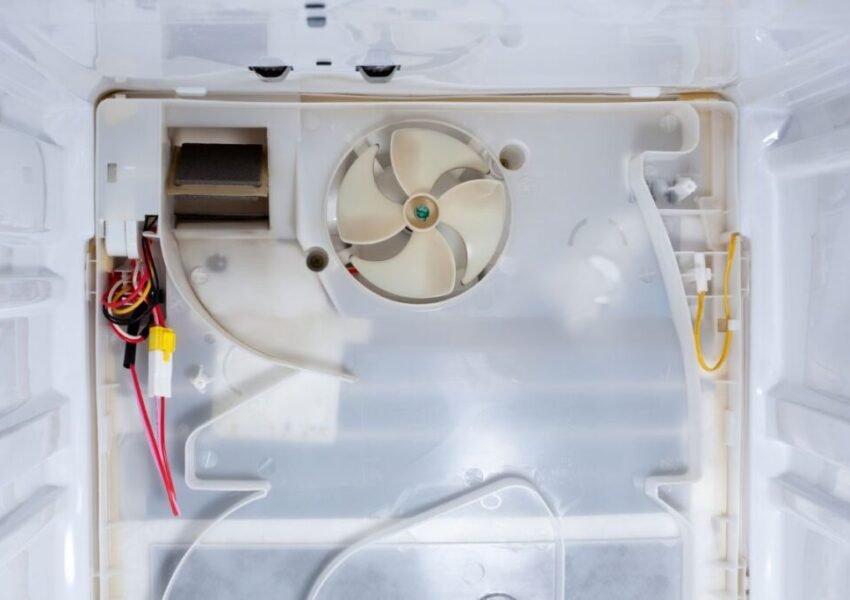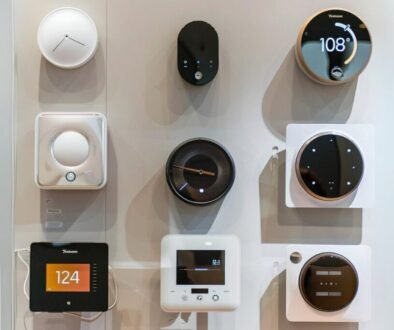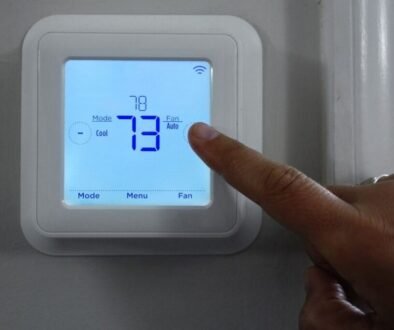A Beginner’s Guide to Natural Refrigerants

Published January 30, 2024
Refrigeration systems with natural refrigerants are the future. As a homeowner, you should know what they are and how they play a role in HVAC units.
In this article, we’ll dive into what natural refrigerants are. We’ll discuss why you should use them, the benefits you can consider, and what you can rely on. Let’s start.
What Are Natural Refrigerants?
It’s critical to put first that natural refrigerants are not derived from nature. They are manufactured industrially. They are derived just like any other refrigerant. They are acknowledged as natural refrigerants because they are substances that occur directly in nature.
Natural refrigerants are substances that take place naturally in the environment. They are used as alternatives to synthetic refrigerants. These elements do not deplete the ozone layer. They also have very low to zero global warming potential.
They are considered more sustainable and climate-friendly. It is the case compared to hydrofluorocarbon (HFC) refrigerants. More importantly, natural refrigerants are also part of nature’s biochemical processes. Their use gives a future-proof solution to the challenges of climate change.
What Are Synthetic Refrigerants?
Synthetic refrigerants are artificial substances employed in cooling systems such as air conditioners. They are also acknowledged as fluorinated gasses. It is due to their fluorine content. While they provide adequate cooling, they have a negative environmental impact. This led to an increasing interest in alternatives such as natural refrigerants.
What Is the Function of Refrigerant?
A refrigerant is a vital component of refrigeration and air conditioning systems. Its main functions area:
- Heat absorption
- Cooling
- Dehumidification
Use of Natural Refrigerants: Benefits You Should Consider
Natural refrigerants are increasingly supported in use because:
1. Environmental impact
Natural refrigerants have zero Ozone Depletion Potential. They also have zero Global Warming Potential. It makes them more environmentally friendly. It is than synthetic refrigerants. Synthetic refrigerants can hugely impact global warming.
2. Energy efficiency
Some natural refrigerants are more energy efficient. It is when compared to their synthetic counterparts in specific applications. Thus, it renders lower operating costs.
3. Regulatory compliance
With increasing regulations worldwide aimed at phasing out high GWP refrigerants, using natural refrigerant aids. It helps businesses stay ahead of regulatory changes.
4. Abundance and cost-effectiveness
Natural refrigerants are often abundantly available. They are also less expensive than synthetic ones.
5. Future proof solution
Natural refrigerants host environmental benefits. They are considered a future-proof solution to the challenges posed by climate change.
Natural Refrigerants List
1. Carbon Dioxide (CO2, R-744)
Carbon dioxide has an ODP of zero. It has a GWP of one. And the element is virtually unlimited. It is also very cheap. Many industrial processes produce it as a by-product.
It is suitable for compact air conditioning systems. It also works well deep freeze warehouses. Moreover, refrigeration systems in supermarkets.
Over the past decades, it has been acknowledged as a refrigerant, mainly in stationary applications. Yet, it can also be used for mobile air conditioning. CO2 refrigeration systems have become relatively compact. Thus, they can be employed for smaller output ranges.
2. Ammonia (NH3)
Ammonia is an inorganic compound also found in nature. It is hugely climate and environmentally friendly. It is cost-effective to produce.
Ammonia has a 150-year track record of being a safe and effective refrigerant. In a world of changing regulations, it remains future-proof.
It can be used for both heating and cooling. This element has a wide range of applications. It is from minus 45 degrees to an industry-leading 95 degrees.
3. Hydrocarbons
Hydrocarbons consist only of carbon and hydrogen. Both have an ODP of zero and a GWP of three. They are inexpensive. They are also easy to acquire. Despite their flammability, they are easy to manage. They have already made a mark in factory-filled systems. Hundreds of millions of household refrigerators work with them as a refrigerant.
Hydrocarbons also work in commercial refrigeration. They function in refrigerated counters, and ice machines. Also, air dehumidifiers, and heat pumps.

Frequently Asked Questions About Natural Refrigerants
1. Why do we need natural refrigerants?
Natural refrigerants are increasingly viewed as a crucial alternative to synthetic refrigerants. It is all because:
- Zero or near zero global warming potential (GWP)
- Zero ozone depletion potential (ODP)
- Sustainability
- Energy efficiency
- Regulatory compliance
2. Is CO2 a natural refrigerant?
Carbon dioxide is a natural refrigerant. It is a naturally occurring substance and is abundant in the environment. It has a zero Ozone Depletion Potential. Moreover, it gets one point in Global Warming Potential. It is a very environmentally friendly option compared to many synthetic refrigerants.
3. Is R134a a natural refrigerant?
No, R134a, or 1,1,1,2-Tetrafluoroethane, is not a natural refrigerant. It’s a hydrofluorocarbon (HF). It is synthetically produced. It does not have any Ozone Depletion Potential. Yet, it has a high Global Warming Potential of 1,430. It means that if it is released into the atmosphere, it can contribute hugely to global warming.
4. Is ammonia a natural refrigerant?
Yes. Ammonia is a natural refrigerant. It is a naturally occurring substance made of nitrogen and hydrogen. It has zero Ozone Depletion Potential. And it gets one point in Global Warming Potential. It is one of the most environmentally friendly refrigerants available.
In setting up our HVAC systems, we should consider the way our choices can impact our planet. After all, it is the only place we can ever be. Taking care of it goes a long way for ourselves, our family, our community, and future generations. It’s time to make a switch on natural refrigerants.

This Content Is Fact Checked
This content has undergone thorough fact-checking by our team of internal experts. Gain further insight into the editorial standards upheld on our website here.
South Florida HVAC Professionals
Snowflakes Air Conditioning has been providing professional HVAC services for over 10 years. We are committed to keeping your air conditioner running smoothly all year round. Our experienced technicians can handle anything from AC repair to sales and AC installation. Whether it’s time for an upgrade or just regular upkeep, we are a name you can trust for your HVAC needs. Contact us today for more information.

About The Author
Meet writer Rei Bayucca, an HVAC and construction industry enthusiast. Discover insightful articles designed to help you solve your most pressing problems. Rei can captivate you with expertly crafted content that will leave you hungry for more.



